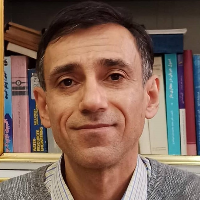Optimal Design of Stepped Spillways for Maximizing Energy Dissipation Using Genetic Algorithm
Author(s):
Abstract:
In the present study, the width and height of steps, also the slope and height of spillways are considered as varied parameters, and has been tried to represent a comprehensive method for optimal designing of stepped spillways. For this reason, a complete program has been written in Matlab programming environment. In this program, Genetic Algorithm has been used for optimization. A stepped spillway with optimized dimensions was designed instead of a smooth spillway of Saroogh Reservoir Dam, which is located in West Azarbaijan province. The results showed that the replaced stepped spillway led to increase the energy dissipation and declined the dimensions of energy dissipator at toe of the stepped spillway. Also, for a constant discharge and varying slope, the variation of optimum height of steps was negligible. The sensitivity analysis of objective function showed that the relative energy dissipation on the stepped spillway for a constant discharge was independent of optimum height of steps and it was decreasing by increasing the slope of spillway. Also, increasing the discharge led to decrease the energy dissipation and increased the optimum height of steps for a constant slope. Results show with the slope 11.3 (%) and discharge 422 m3/s, the proper step height is 1.6 m and energy dissipation is 60.42 (%). With the same slope but discharge 776.9 m3/s (design discharge), proper step height is 2.25 m and energy dissipation is 43.7 (%).
Keywords:
Language:
Persian
Published:
Journal of Soil and water knowledge, Volume:22 Issue: 4, 2013
Page:
69
https://www.magiran.com/p1109476
سامانه نویسندگان
مقالات دیگری از این نویسنده (گان)
-
Numerical Investigating the Effect of Trapezoidal Sharp-Crested Sideweir Geometric Parameters on Discharge Coefficient
Sara Namdar, Akram Abbaspour *, Ali Hosseinzadeh,
Journal of Hydraulics and Water Science, -
Numerical and experimental study of trajectory for free falling jets
*, Ali Taheri Aghdam, Ali Hossein Zadeh Dalir, Akram Abbaspour
Amirkabir Journal of Civil Engineering,



